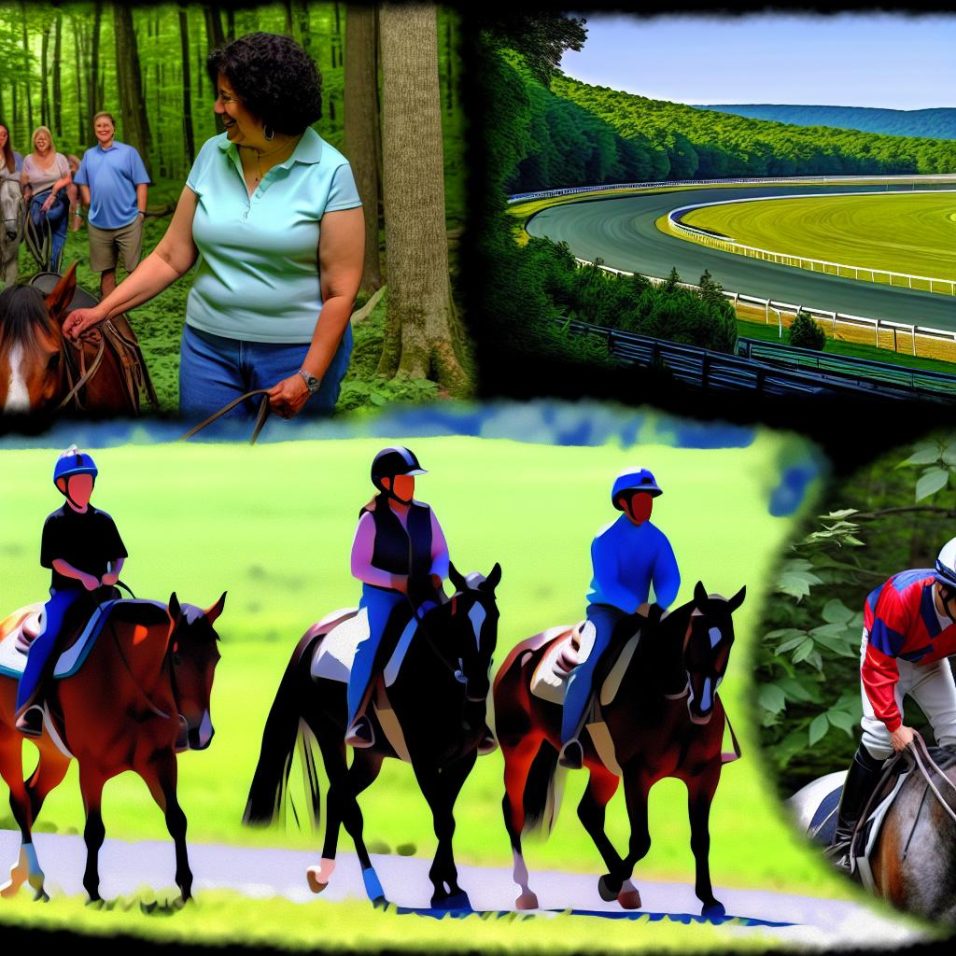The Historical Impact of Horses in Virginia
Virginia’s tourism sector has long capitalized on its profound equestrian legacy to draw visitors worldwide. From the outset of American colonization, horses have been pivotal in Virginia’s development. They assumed crucial roles in agriculture, transport, and warfare, imprinting their mark on the state’s history and culture.
Colonial Era and the Introduction of Horses
The early 1600s marked the introduction of horses to Virginia by European settlers. These animals rapidly became indispensable for crucial activities such as transportation and farming. The plantations, which were pivotal to the colony’s economy, heavily depended on horses to plow fields and move goods to markets efficiently. This reliance was not only because horses were strong and capable of handling rigorous work, but also because they could travel through rough terrains that would otherwise be inaccessible.
Over time, these animals became ingrained in the Virginian lifestyle, representing not just a means of labor, but a symbol of status and power. A prominent landowner with a stable of strong, healthy horses was often seen as influential and prosperous, reflecting horses’ significant role in colonial society.
The Influence of Horses on Virginia’s Agriculture and Economy
As Virginia’s economy expanded in the centuries following colonization, so too did its dependence on horses. By the 18th century, the state had begun to produce its own breeds, notably the Virginia Quarter Horse. These robust and versatile breeds were ideal for work on the farms and plantations that constituted a major part of the economy.
The rich and expansive agricultural landscape of Virginia fostered the growth of horse breeding as a significant economic activity. Breeding not only supplied the local demand but also created a market for exporting these prized horses to other colonies and countries. The influence of horses in agriculture was multifaceted; they were engaged in tasks ranging from plowing to transporting crops such as tobacco, which was Virginia’s cash crop at the time.
This period also saw the development of equine-related businesses, including blacksmithing and saddle making, creating a network of industries all revolving around the care and use of horses. Thus, horses were not merely animals of labor; they were central to the burgeoning economy, contributing to Virginia’s prosperity.
Modern Equestrian Attractions
In contemporary Virginia, horses continue to play a significant role, especially in the tourism sector. The state has developed various attractions centered around these majestic creatures, drawing thousands of visitors each year. These attractions showcase both historical and modern facets of equestrian life.
Horse Racing and Equestrian Sports
Virginia boasts several notable horse racing venues, with Colonial Downs amongst the most prominent. Events like the Virginia Gold Cup and the International Gold Cup are significant occasions that pull large crowds from near and far, underscoring horse racing’s enduring popularity in the region.
These events do not merely represent sporting contests; they are communal gatherings that celebrate Virginia’s rich equestrian heritage. They attract enthusiasts and casual spectators alike, contributing substantially to local economies through hospitality and related activities.
Equestrian Trails and Nature Experiences
Outdoor enthusiasts and nature lovers find Virginia’s equestrian trails irresistible. These trails, located in picturesque places such as the Shenandoah National Park, allow tourists to immerse themselves in scenic vistas while riding. This engagement with nature, facilitated by horseback adventures, provides a unique way to appreciate Virginia’s natural splendor.
These trails are often maintained with the cooperation of local organizations and the state, ensuring their sustainability and enhancing the visitor experience. They offer tourists the chance to experience the tranquility and beauty of Virginia’s landscapes in a manner that’s both relaxing and invigorating.
Historical Tours and Educational Opportunities
For those intrigued by history, Virginia offers a variety of horseback tours that delve into its colonial heritage. Tours to places like Colonial Williamsburg and plantations along the James River provide an intimate glimpse into the past, illustrating the critical role horses played in the region’s early development.
Such tours are not limited to recreational activities; they also provide educational insights into the social, economic, and cultural aspects of historical eras. This educational component enriches the tourist experience, allowing visitors to connect with the past in a meaningful and engaging way.
Equine Tourism and Community Impact
Beyond its impact on tourism, the horse industry in Virginia significantly influences local communities. It supports numerous jobs and engages various sectors, including breeding, training, event management, and tourism services. This interdependence between the tourism industry and local communities highlights horses’ ongoing importance in Virginia.
Supporting Local Economies
The equestrian sector provides vital employment opportunities that bolster rural economies throughout Virginia. It plays a crucial role in preserving open spaces, which benefits communities both socially and economically. Farms and stables dedicated to horse tourism often act as stewards of the land, preserving it for future generations.
Moreover, the equine industry’s support extends to various small businesses, from veterinarians to artisans, contributing to a diverse and thriving local economy. This interconnected web of services and opportunities reinforces the substantial role horses play in community livelihoods.
Conclusion
In summary, horses remain a vital aspect of Virginia’s identity, merging historical importance with modern economic and recreational values. As the state’s tourism industry continues to grow, the appeal of horses persists, reflecting their lasting influence on Virginia. Through a combination of history, sport, and conservation of natural beauty, the state offers a rich tapestry of equestrian experiences for all who visit, ensuring that horses remain an enduring symbol and a lasting legacy in Virginia’s cultural and economic fabric.


